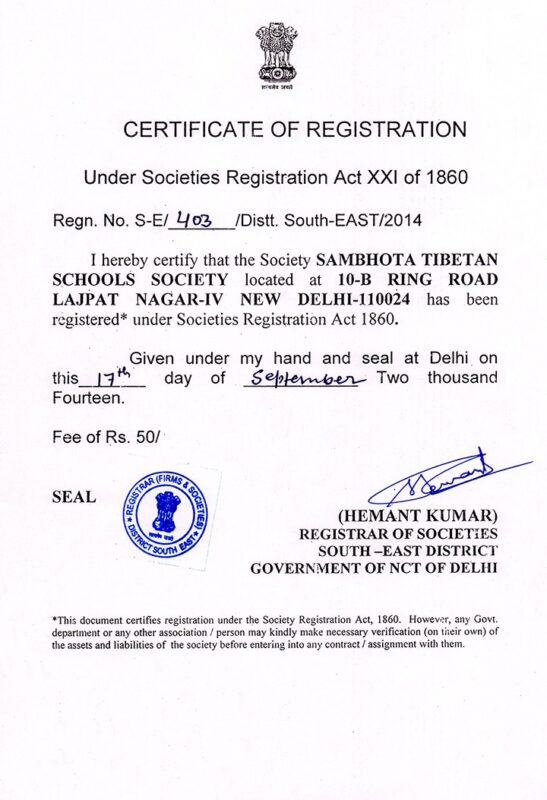Society Registration
Society registration is mandatory for nonprofit organizations in India. It involves legal recognition, better credibility, and tax benefits. You can avail of these benefits by fulfilling the following criteria.
Minimum of 7 members
YObjectives must be scientific/literary/charitable.
MoA and authorization from the Registrar are necessary.
Contact Us
Your Society Registration with NGOExperts
We have simplified the process for you and can be done online with NGOExperts in 3 simple steps:
Step 1
First, we'll have a consultation with you to assess your NGO's needs & determine which services are necessary.
Step 2
Next, we'll guide you through the paperwork & legal requirements needed to register your organization.
Step 3
We'll work with you to ensure that your NGO is in compliance with all applicable laws & regulations, & ready to make an impact.
What Is Society Registration full details
Society Registration Certificate

What Is Society Registration?
A Society registration is a process of forming a non-profit organisation, registered under the Societies Registration Act 1860. The Act allows members to form an association to pursue common goals like literature, science or charity.
Upon getting approved by the registrar, a society is considered to be a legal entity that can own property and enter into contracts. The Act also ensures transparency by requiring annual returns with details on finances and membership numbers. It helps to safeguard the interests of members by ensuring that the society’s objectives are met.
The first step of the society registration online is to file an application with the registrar. This needs to include an affidavit from founding members, affirming the legitimacy of the society’s name & address. It is advisable to seek the assistance of professionals like NGOExperts to draft this affidavit. The next step is drafting a Memorandum of Association (MOA) & By-laws. Both these documents need to be signed by three founding members of the society. The MOA outlines the purpose of the society, while the by-laws govern how it is run.
Once the society’s founding members have agreed upon the MOA & By-laws, they need to submit them along with a covering letter that mentions the society’s objectives. Applicants must also furnish an affidavit regarding their residence. This could be in the form of a PAN Card, driving license, bank statement or utility bill. Similarly, if the proposed registered office of the society is located in someone else’s property, then the owner needs to provide an affidavit stating his/her consent for letting the society use the premises.
After the submission of these documents, the registrar needs to verify them and issue the society registration certificate. This is typically done within 30 days of the filing of the application. The registrar is also responsible for listing the rules & regulations of the society in the register.
It is advisable to get professional assistance for completing the above steps, as it is a complicated procedure that requires extensive knowledge of laws pertaining to societies. Moreover, the registrar may also ask for additional information or clarification from the society, depending on the nature of the application.
If you want to check the status of your application, then you can visit the official website of the registrar of the particular state or union territory where your society is being registered. You will need to provide the society’s registration number, along with a few other details such as the name of the registrar, the date of filing and so on. Alternatively, you can also use third-party websites that offer services to check the registration status of a society. These third-party websites typically charge a fee for their services. However, the service they offer is reliable. They are backed by experts with years of industry experience and have an excellent track record. They can also help you with any legal proceedings, if needed. They have a team of dedicated legal professionals that will assist you with every step of the process.
